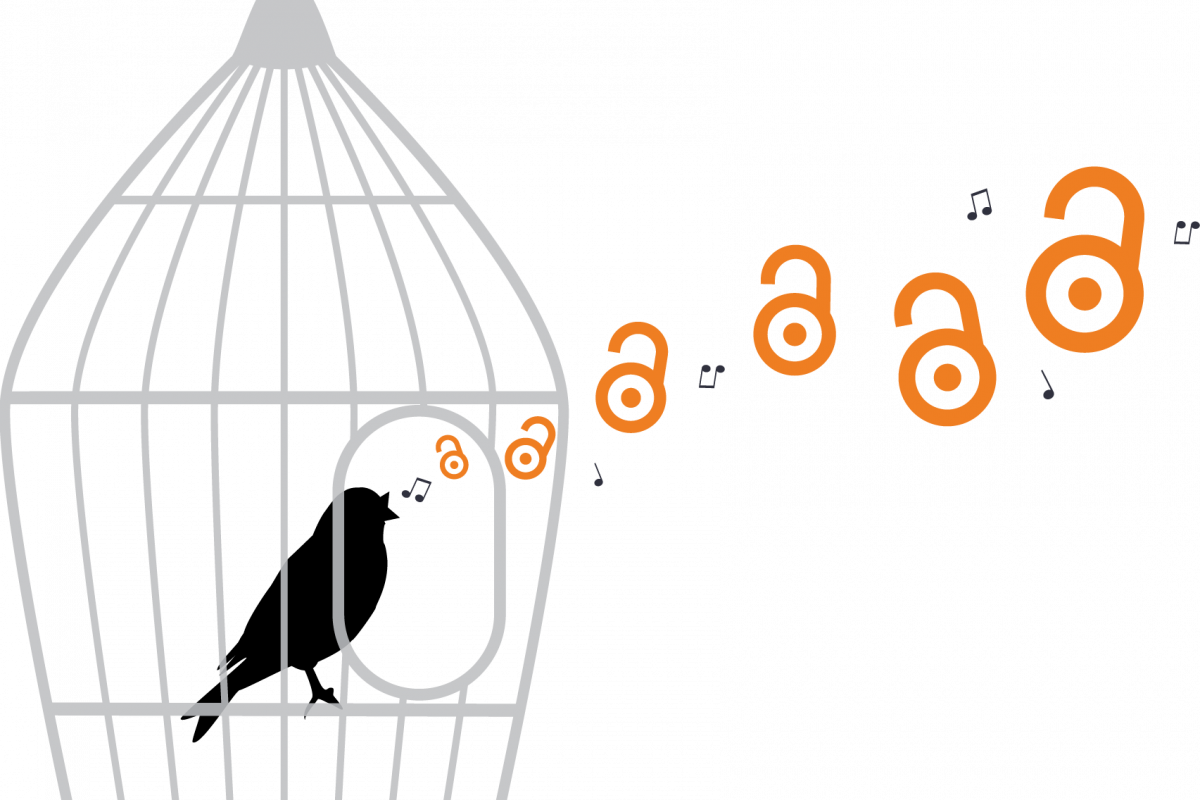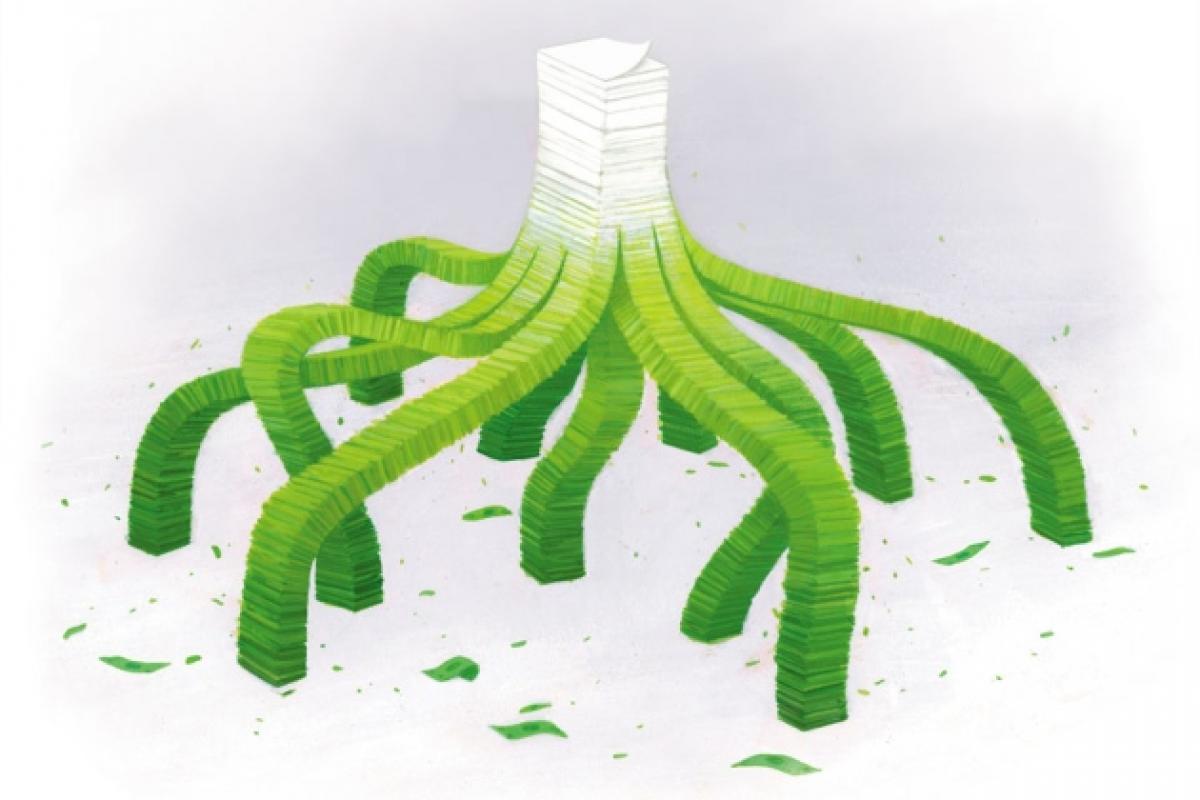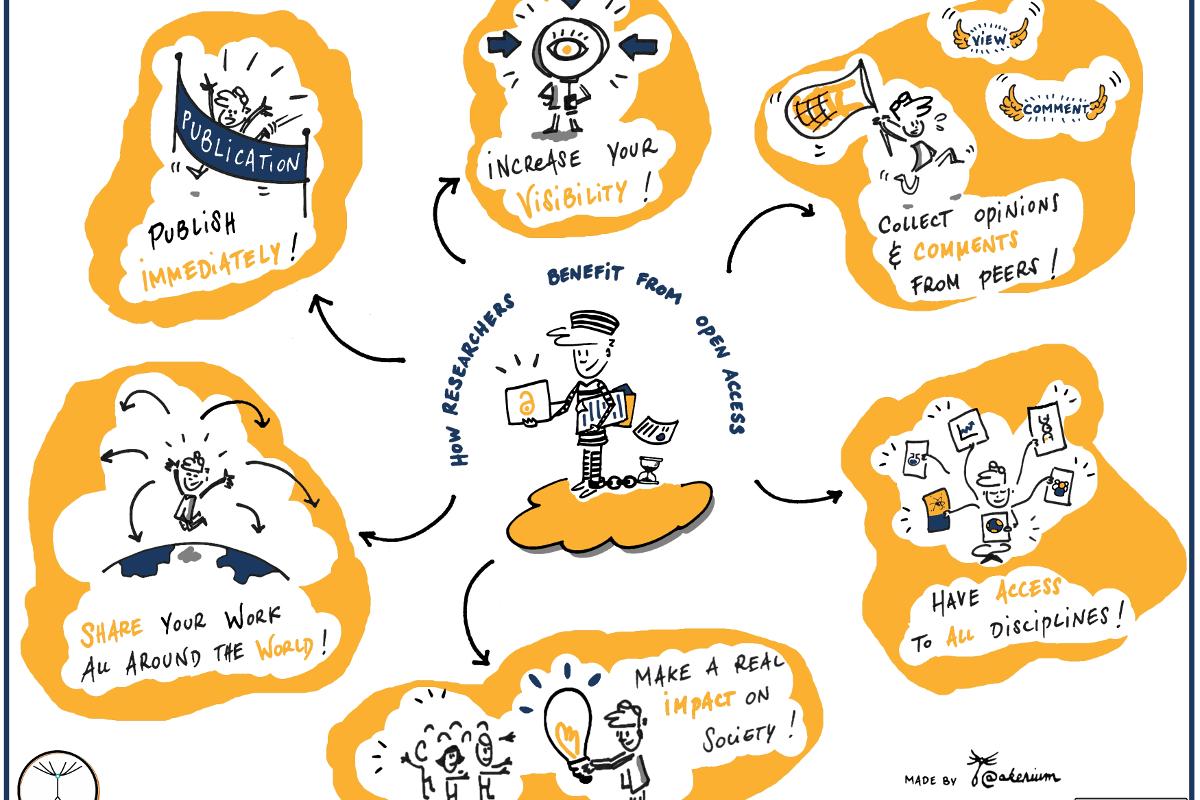The University Libraries are taking principled action to make scholarship more open, affordable, sustainable, and transparent in order to make the world ever better.
Every year scholarly publishers reap profits in excess of 30%. The University Libraries negotiating team works to keep costs lower so that we can extend access to the resources and research you need. Sustainable Scholarship provides direct updates from library experts advocating for the University of Rochester in resource access negotiations. Our central priority is supporting researchers as knowledge creators and consumers. We are protecting your access and rights to secure the University’s scholarly and cultural estate.
Join the University of Rochester Community in ensuring student access to textbooks by making the ACT Commitment.
About
At the University Libraries, we are committed to action that will make scholarship more affordable, sustainable, transparent, and open to support learning, scholarship, and social good. Extending access makes the world ever better.
Scholars rely on a vast international publishing infrastructure to share research and learn about developments in their fields. For decades, academia entrusted publishing to learned societies, university presses, and not-for-profit publishers. Libraries subscribed to journals from these publishers at reasonable costs.
But today, commercial publishers dominate the scholarly publishing market. They have purchased many of the world’s leading scientific journals and have instituted new subscription models. The cost of scholarly information outpaces the rate of inflation. Publisher profits exceed those of corporations such as Apple, Alphabet, and JP Morgan Chase. Subscription costs are breaking library and university budgets around the world.
Publishers provide many valuable services, such as preparing articles for print or electronic distribution, marketing research publications, and overseeing the peer-review process. However, these services offer little value when the cost and terms of purchasing or licensing scholarship become untenable. It is time to build a system of sustainable scholarship that will better serve researchers, universities, learners, and the public good.
Learn more
-
Is the staggeringly profitable business of scientific publishing bad for science? (The Guardian, June 27, 2017)
-
The quest to topple science-stymying academic paywalls (Wired, January 4, 2019)
-
SPARC (The Scholarly Publishing and Academic Research Coalition)
Attend a Discussion Session
Join library experts for monthly 45 minute discussions and learn more about the work we do to advocate for University of Rochester researchers as knowledge creators and consumers, protecting your rights and ensuring access to the University’s scholarly and cultural estate.
Check back here or on the University of Rochester Calendar for future discussions.
Strategy
The UR Libraries are committed to ensuring access for UR scholars and scholarship. We are taking principled action to make scholarship more affordable, sustainable, transparent, and open in order to make the world ever better.
To do so, the University Libraries leverages the scholarly investment of the University of Rochester on behalf of students, scholars, and our communities. To extend access to those communities we pursue transparent price and license information, and promote the adoption of Open Access practices.
Open Access (OA) speeds and improves access to research, ensuring public access to publicly funded scholarship. To advance this strategy we will:
-
Invest in projects that transform scholarly communications;
-
Educate the University community about open access and options for making their own scholarship open;
-
Leverage UR Research as an open and accessible repository for the University’s research output.
The list of subscriptions for review was developed through data informed criteria that included usage statistics, UR citations and publications, cost information, and subject-based analytics. We are now seeking your qualitative input as a UR researcher- please contact your Subject Librarian with any questions.
Sustainable Scholarship is our way of sharing our strategy and work with UR researchers and scholars - we’d love to hear from you.
Campus Review Data
The list of subscriptions for review was developed through data informed criteria that included usage statistics, UR citations and publications, cost information, and subject-based analytics. We are now seeking your qualitative input as a UR researcher - please contact your Subject Librarian with any questions.
Updates
Take Action
The University Libraries is committed to making access to research more sustainable, affordable, transparent and open. Here are actions that individuals can take as authors, researchers and members of the scholarly community.
As an Author: Own your copyright
The single most important step you can take is to retain copyright in your own publications! Most publishing contracts ask you to sign copyright over to the publisher, effectively giving up rights to your own work. These contracts are often negotiable. Try using the SPARC Author Addendum. To learn more, you can always contact the Collection Strategies and Scholarly Communications Department.
Publish in open access journals
There are reputable open access journals in nearly every field. Find guidance and lists at Think, Check, Submit and the Directory of Open Access Journals.
Deposit your research in an open access repository
Open access makes your article easier for scholars to find, use and cite. Our repository, UR Research allows all members of the University of Rochester community to deposit, preserve and share their research output. Other reputable repositories for various disciplines include PubMed Central, arXiv, bioRxiv, SocArXiv and OSF Preprints.
As a Researcher: Identify important content sources for your discipline
Begin a conversation with the librarian for your discipline about the most important content sources in your area. Even if UR does not subscribe to a given title, there are many ways we can get articles to you quickly.
Install a browser plug-in to find open access articles
Browser extensions such as Open Access Button and Unpaywall are free and legal ways to locate open access literature.
Ask a colleague
Many researchers are happy to provide a copy of their articles upon request. Sites such as ResearchGate and Humanities Commons often facilitate legal scholarly sharing.
Get to know interlibrary loan
When University of Rochester’s libraries don’t have an article you need, we may be able to get it from another library at no cost to you, and deliver it straight to your inbox. Learn more about interlibrary loan services.
As a member of the scholarly community: Prioritize quality research over prestige of the journal
Encourage your department and discipline to be clear about publishing criteria for appointment, promotion and tenure decisions. Learn about criticisms of journal impact factors and why they are a poor way to assess research quality.
Review your association’s publishing contract
Many scholarly societies and associations contract publication of their journals to large commercial publishers. Yet university presses, including the University of Rochester Press, and other outlets may offer more favorable terms for authors, better deals for societies and more affordable pricing for institutions.
Transition your journal to open access
Consider working with your scholarly society to make its journal open access. Check out our 4/24/2020 update on transitioning your journal to open access, courtesy of the University of North Carolina.
Stay informed
The landscape of scholarly publishing and open access is shifting rapidly. Follow updates on on this website, attend a discussion session, speak with the librarian for your discipline, or reach out to the University Libraries’ Collection Strategies and Scholarly Communications Department. We are happy to come speak with departments, labs, committees, and other groups or individuals at the University. If you’re at URMC, make sure you contact your liaison.
Contact Us
We're here to help. We've included topics that each contact would love to discuss with you.
| Moriana Garcia, Scholarly Communications Librarian mgarcia@library.rochester.edu |
Science communications and open scholarship |
| Beth Merkle, Lead Librarian, Acquisitions & Collections, URMC Elizabeth.Merkle@urmc.rochester.edu |
Medical research, publishers, negotiations, and journal review |
| Kim Hoffman, Assistant Dean, Engaged Learning and Research, RCL khoffman@library.rochester.edu |
Open Educational Resources and Open Pedagogy |
| Kristin Moo, Director, Collection Strategies RCL kmoo@library.rochester.edu |
Publishers, negotiations, and journal review |
| Daniel Castillo, Somerville Director, Science & Engineering Libraries & Research Initiatives, RCL daniel.castillo@library.rochester.edu |
Scholarly identity, open research and data practices |
| Kristen Totleben, Open Publishing Librarian, RCL ktotleben@library.rochester.edu |
Open Pedagogy |











